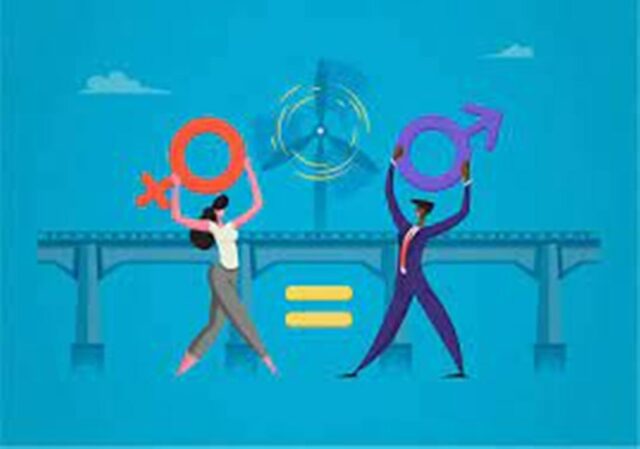In 2015, Costa Rica was one of the countries that signed an agreement that contains 17 objectives through which it is intended to guarantee that by 2030 all people enjoy minimum living conditions. These are the Sustainable Development Goals (SDGs) or, rather, the Global Goals. And one of them is gender equality.
Thus, the country committed itself that in 2030 there will be no form of discrimination against women and girls. Not only because it is a human right, but because it is decisive for economic and social development.
“It has been proven time and again that empowering women and girls has a multiplier effect and helps promote economic growth and development globally,” noted the United Nations Development Program (UNDP).
How is the country
Women bear the weight of unemployment on their shoulders and, not for nothing, it is said that poverty wears the face of a woman. In July 2021, there was 24.2% unemployment for women, as opposed to 13.3% for men.
Meanwhile, female-headed households represent 39.3% of households considered dimensionally poor. Due to this and other objectives, the United Nations System (UN) urged the country to accelerate their fulfillment.
The UN highlights progress in areas such as the political participation of women and in issues such as street harassment, improper relationships, obstetric violence and political violence. But, they are only advances that do not imply its eradication.
In contrast, the Organization points out, Costa Rica has to advance in favorable conditions for access to more and better jobs for women. There are two opposing events here since, on the one hand, they are more academically prepared; Also, the majority of young people who neither study nor work are women. Likewise, it is urgent to address poverty and equalize domestic work for a better enjoyment of life.
In addition, it is necessary to eradicate the violence that, in the last 14 years, has taken the lives of 383 women, victims of femicides. Within the challenges there are two underlying aspects to the detriment of women.
Former president of the Republic Laura Chinchilla, the first female to reach the presidential office in the history of our country
Eleven years have passed since the presidential sash was placed on her, and in her opinion, this achievement served to empower many young women and encourage them to participate in politics.
“The most important thing that happened, because the laws and regulations remain the same, that is, by then we had parity, it seems to me that the most important thing that happened from my presidency is that the vision and image of women in politics, we saw a group of young women, witnesses of that event, they were empowered and decided to take a step forward,” said Chinchilla.

“Today we have an almost equal Congress with many women of relatively young ages, very strong and prepared, and I have no doubt that they are moving forward,” she continued. As an anecdote, Chinchilla recalled that in 2010, in addition to winning the national elections, she won the children’s vote.
For this reason, before entering the exercise of her functions, she attended educational centers to thank the gesture. “The teachers told me that after my elections, many girls returned to the schools saying that they too were going to be Presidents of Costa Rica,” she said.
After her experience in this position as a woman, the former head of state considers that she should continue working in a co-responsibility of care. This is because, as long as the care of children, the elderly and the sick, in addition to unpaid work, continues mostly in the hands of women, their space in politics is reduced.
The UN, precisely, documents that in Costa Rica, women dedicate more than twice as many hours as men to unpaid domestic work. “Then, the woman restricts herself in her participation, be it work, student, or politics,” Chinchilla said.
“So, we have to continue advancing with those policies that there was a brake with the care network that was made not only to favor children but also women and we must continue in that direction, in co-responsibility, programs of co-responsibility for care at home, so that women free up time and can join politics,” advised the former president.
Other challenges for the incorporation of more women into political positions have to do with financing and breaking stereotypes. This goes through greater inclusion in the private and corporate sectors, according to Chinchilla. “That inhibits many women from having access to financing.”
In the country, only 4 out of 10 managerial positions are held by women. For the 2022 elections, for the first time in history, the country will have four women aspiring to the presidency of the Republic.
They are Lineth Saborío with the Christian Social Unity, Natalia Díaz with Unidos Podemos, Viviam Quesada with Fuerza Democrática and Maricela Morales with Unión Costarricense Democrática (UCD).
The municipal case
Although the UN highlights progress in the composition of the Legislative Assembly, with 26 deputies, the participation of women in the municipal system is meager. Only 9.8% of mayoral positions are held by women. Karen Porras, representative of the Costa Rican Network of Municipal Women, confirmed that there are great challenges ahead.
“We have enough lags and injustices in the shared experience, seen from the respect, validation and application of the conditions that lead to equity and equal opportunities for both men and women.
“And that today the disagreements and disparities that we see in numbers and positions are due, in some cases, to the effects of political violence suffered by women politicians and that the distance from the interest of many women to participate in politics,” she acknowledged.
In her opinion, more determined women and more sensitive political parties are required to provide the space for women to nominate their names. Also, she pointed to the need for cultural changes to have communities that are open and willing to recognize the right and give their leaders the opportunity.
The country has nine years left to eliminate these inequalities that today harm women in all areas. All areas, with equal importance, will have to be addressed since we only have nine years left to achieve this.

